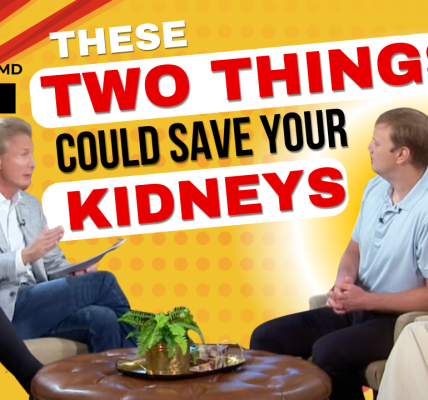Have you ever felt dehydrated on Keto Zone? If you haven’t thought about fluids and electrolytes differently now on Keto Zone than before, it’s time to start.
Believe it or not, your body handles fluids and electrolytes differently once you’re eating very-low-carb.
And, it’s imperative that you learn these differences and make adjustments to hydrate and feel your best.
Here’s how fluids and electrolytes work on Keto Zone, and how to stay hydrated for the end of summer and the dry Autumn/Winter months.
Dehydrated on Keto Zone? Learn to Hydrate Right!
1. You’re Losing Fluids on Keto
It’s true. When you begin eating very low carb, your body will lose fluid. This isn’t to say your weight loss is just fluid loss, of course, you’ll lose fat! But, especially in the beginning, fluids are excreted.
Why?
As you cut out most carbs, your body will no longer make as much insulin (this is a good thing!). Without insulin to help store carbs, glycogen becomes depleted. For every gram of glycogen lost, 3 grams of water are excreted.
And, your kidneys have to do work.
Your kidneys will begin to excrete these water grams rather than retaining them.
You will feel less bloated and begin to look leaner and better.
However, your lost fluid needs to be replenished through diet. And, you’ll lose the electrolytes through the fluids you excrete. Which can lead to dehydration.
2. It’s Not Just About Fluids
Of course, fluids are very important to hydration, no matter how you eat. But, electrolytes are the game-changer with Keto Zone, since they’re excreted with the glycogen grams of water.
This is important.
Electrolytes are vital to life. These minerals enable many functions in the body, including muscle contraction, heart contraction, hydration of the whole body and brain, nerve function, digestion, and much more. If you’ve ever been extremely dehydrated or low on electrolytes, you know your body will dysfunction in a hurry.
The most important and most impacted mineral electrolytes are sodium, calcium, potassium, and magnesium.
3. Low Electrolytes are Responsible for Keto Flu
As you get into the Keto Zone, electrolytes tend to rebalance without the glycogen. But, if you’re just beginning, or cycling in and out of ketosis, you’re at risk of low electrolytes again and again.
Low electrolyte status is also known as the Keto Flu.
As electrolyte levels fall, you can begin to feel symptoms of heart racing, headaches, poor digestion, and more. This is just an adjustment period, but it can be avoided. And, you can easily keep electrolytes balanced in general while in Keto Zone.
4. How to Balance Electrolytes When Initiating Keto Zone and Staying in Ketosis
Since you’ll no longer carry electrolytes in glycogen, it’s imperative you replenish them through your diet.
Here’s how:
- Sodium: You can simply add more salt. Although salt, in general, has a bad name, it’s a vital mineral electrolyte and simply needs to be consumed according to your diet and lifestyle. Keto Zone eaters need more; athletes need more. You can drink bone broth, or add a daily dose of Instant Ketones for ketone substrates and sodium.
- Potassium: With a good variety of foods in your diet, you can easily obtain potassium through whole foods. Eat salmon, nuts, avocados, veggies, and mushrooms to get enough.
- Calcium: Calcium is also readily available in Keto Zone. You can get calcium in fortified non-dairy milk, like coconut milk and almond milk, in high-fat dairy products, like Greek Yogurt, and in dark leafy greens, broccoli, and fish. If you choose to supplement, make sure you’re also consuming vitamin D.
- Magnesium: Magnesium is incredibly important (1), and often deficient mineral in adults. It’s found in hemp heart seeds, raw cacao, leafy greens, and more. However, it’s not easily absorbed by humans and may need supplementation. If concerned about magnesium levels, read 7 Signs of a Magnesium Deficiency.
5. Avoid Dehydration on Keto
So, how much should you drink and add electrolytes?
- For most in the Keto Zone, you can simply aim for 64-80 oz. fluids per day. You can usually accomplish this by drinking to thirst. Older adults are typically more at risk for dehydration (2). Make sure to consume fluids throughout the day.
- Then, unless you have high blood pressure, consume salt with meals and add a daily serving of Instant Ketones any time you are re-entering the Keto Zone or feeling dehydrated.
- Make sure to eat a variety of high potassium, calcium, and magnesium foods. Most adults should also supplement with 200-400 mg of magnesium per day.
- If you exercise and sweat, add 24-32 oz. fluid and 600-800 mg sodium for every hour of your workout. This does not need to be consumed during the workout, but before, during as needed, and after is fine. You can use low-carb electrolyte drink, like NUUN, if desired.
- Be diligent after any period out of the Keto Zone. You’ll go through the glycogen-depleting phase again, and need to supplement with extra electrolytes to avoid the Keto Flu.
Bottom Line
You can stay well hydrated and electrolyte-balanced when getting into, and staying in the Keto Zone. You don’t have to be dehydrated on Keto! It simply takes a bit of know-how (you’ve got that now), the use of helpful supplements like Instant Ketones, and consuming adequate fluids with extra electrolytes when needed.















